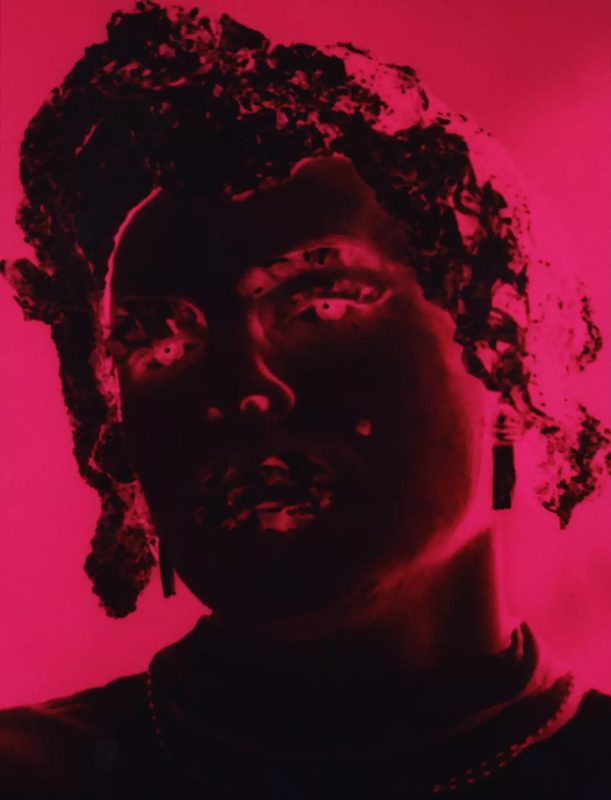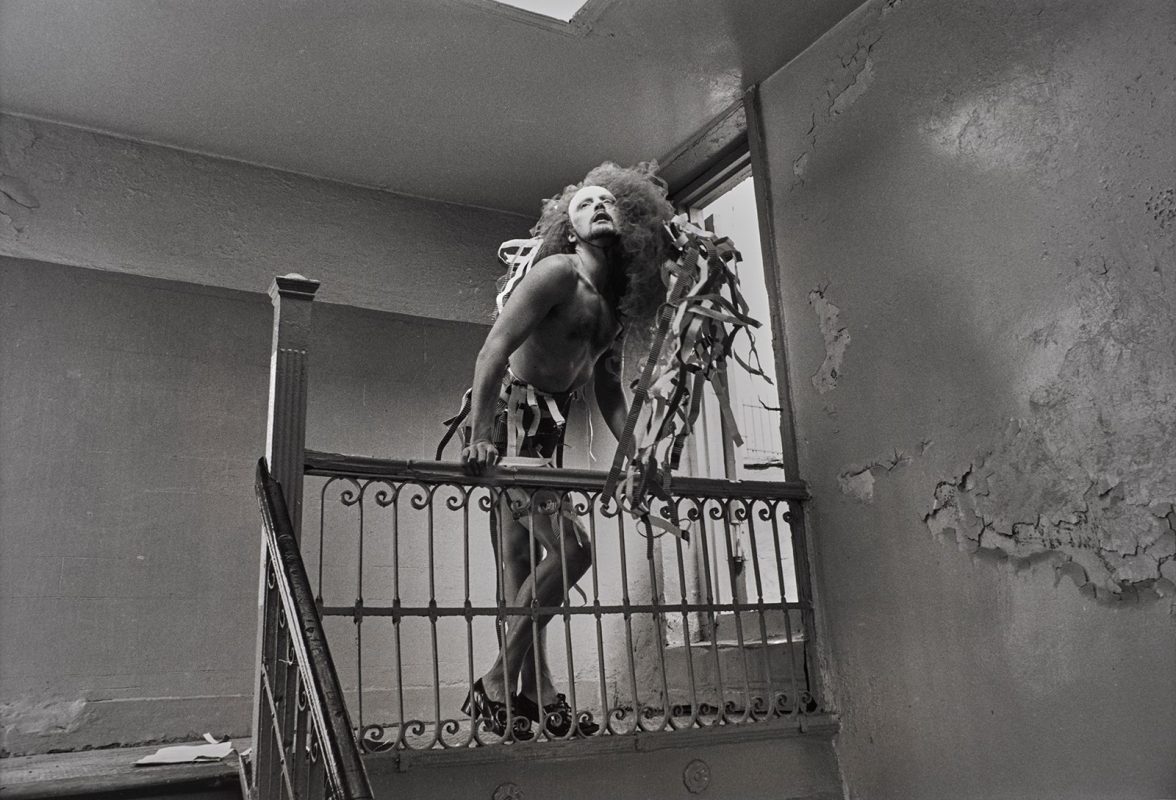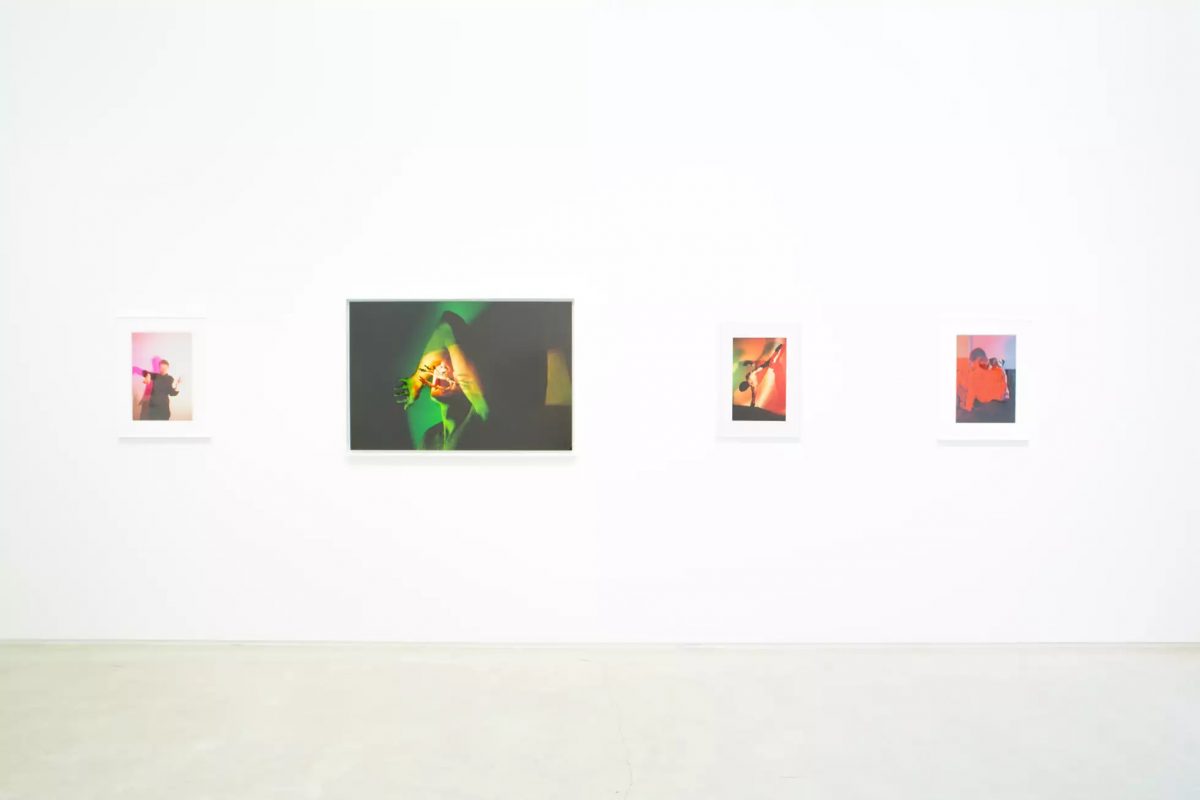New York artist Jimmy Desana’s images were disturbing, provocative, and frequently darkly comedic; urging viewers to perceive the nude figure in a new way.

Jimmy DeSana (1949-1990) was a photographer. His early 1970s entry into New York’s East Village milieu would prove momentous to the aesthetic narrative of that pivotal period in the city’s history. During this time, he photographed friends such as Kathy Acker, Brian Eno, Richard Hell, Kenneth Anger, and Debbie Harry, among many others – but never truly cashed in on the cache of celebrity.
Art in its Highest Form
Desana’s provocative and darkly funny style is the very definition of avant-garde. His photography perfectly depicts themes ranging from punk to sadomasochism, camp club culture to performance art.
His staged photos of the deformed and moving human figure and his many portraits of cultural giants such as Yoko Ono, John Giorno, David Byrne, and Debbie Harry caught the defining avant-garde ethos of the time.

“Submission” (1979), the artist’s self-published book, addressed the murky nature of the BDSM subculture in black and white silver gelatine prints. Other series featured vivid photos of the artist and his companions standing faceless and writhing in various residential places.
The “Submission” retrospective recently opened at the Brooklyn Museum, bringing together more than 200 pieces by this frequently forgotten artist. These range from his early forays into photography in the late 1960s until his death from AIDS in 1990.
The show’s curator Drew Sawyer reflects on DeSana’s unique visual language and style, telling Dazed,
“Mapplethorpe and Hujar practiced in a very traditionally beautiful pictorial photographic mode – turning black and white classic photography towards queer subjects. I think DeSana was just working in a very different way. He was drawing on surrealism, performance, and darkroom experimentation.”
Sawyer continues,
“Maybe he was less interested in beauty [than his peers], although I find his photographs beautiful. I think he was pushing against the sort of classicism that was much more dominant. And I think, in part, that’s why it’s taken so long for his work to be integrated within museums and even galleries.”
“Submission”

Although he is lesser known than many of his contemporaries, DeSana’s impact is felt everywhere.
“I see it everywhere,”
says Sawyer, tracing the lineage from DeSana to artists such as Wolfgang Tillmans and Catherine Opie.
“Then there are also so many artists making performative photography involving objects and I have no idea whether they’re aware of DeSana’s work or not because there hadn’t been a survey show and a lot of people haven’t seen his work in a really long time. But now, there is a book [accompanying the exhibition] and hopefully, you know, more and more people will be able to see the work.”
“Submission” is appearing at the Brooklyn Museum until April 16, 2023.
Subscribe to FIB’s Weekly Breaking News Report for your weekly dose of music, fashion and pop culture news!






